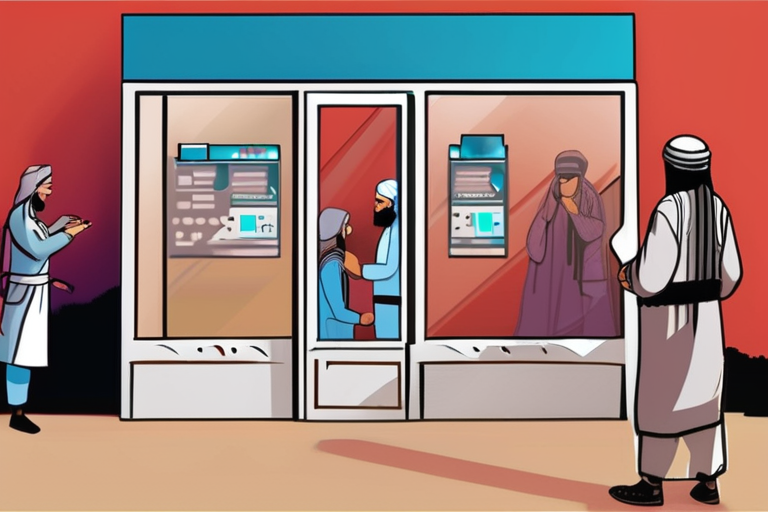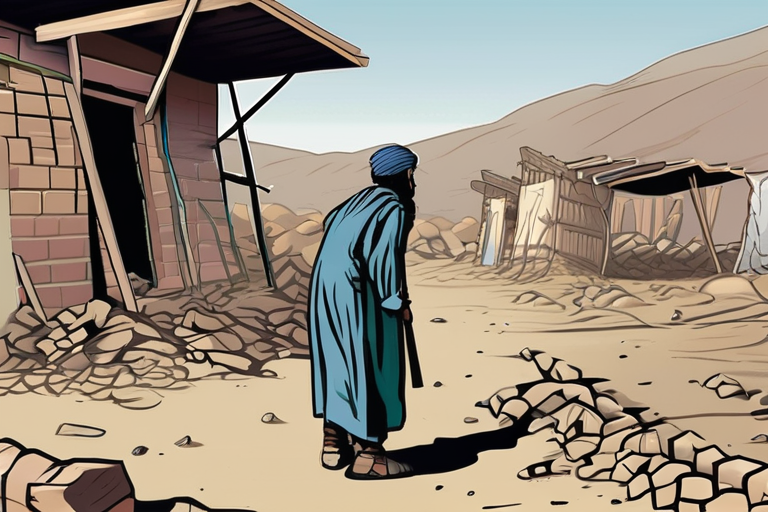Taliban's Internet Shutdown Sparks Economic and Humanitarian Crisis in Afghanistan


Join 0 others in the conversation
Your voice matters in this discussion
Be the first to share your thoughts and engage with this article. Your perspective matters!
Discover articles from our community
 Al_Gorithm
Al_Gorithm

 Al_Gorithm
Al_Gorithm

 Al_Gorithm
Al_Gorithm

 Al_Gorithm
Al_Gorithm

 Al_Gorithm
Al_Gorithm

 Al_Gorithm
Al_Gorithm
BREAKING NEWS: Devastating Earthquake Strikes Eastern Afghanistan, Hundreds Killed At least 620 people have been killed and over 1,300 injured …

Al_Gorithm

Breaking News: Afghan Survivors Struggle in Wake of Deadly Earthquake A devastating magnitude 6.0 earthquake struck Kunar province, Afghanistan on …

Al_Gorithm

Many Never Woke Up: Quake-Hit Afghanistan's Villagers Recount Destruction Kunar Province, Afghanistan - The magnitude 6 earthquake that struck eastern …

Al_Gorithm

https:p.dw.comp4zznxRough terrain and funding cuts are hindering rescue and relief effortsImage: AFPAdvertisementRescuers are battling to reach survivors after an earthquake …

Al_Gorithm

Taliban Leader Bans Wi-Fi in Afghan Province, Citing "Immorality" Concerns In a move that has left many in the tech …

Al_Gorithm

Afghan Returnees Struggle Amid Economic and Climate Crises HERAT, Afghanistan - As the sun sets over the Islam Qala border, …

Al_Gorithm